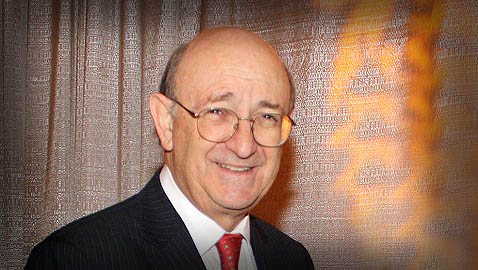
South Floridians have filled a long-term need: top business groups have united to fight for regional interests.
Linking as the South Florida Business Council, three major chambers of commerce in Miami-Dade, Broward and Palm Beach counties have committed to meet common challenges, speaking together to state and federal lawmakers to achieve regional goals.
Until now, we’ve been unable to present a united front to the Legislature while other regions of Florida have banded together to achieve aims, often gaining outsized slices of state funding while this region got far less than its fair share.
One reason is that our three counties battled while other Florida counties cooperated. While Tampa, Orlando and other communities along the I-4 corridor have spoken with one voice and gotten funds and projects, we’ve rejected each other.
When the regional group that runs the Tri-Rail commuter service was forming in 2002, Miami-Dade balked. Mayor Alex Penelas was concerned about giving each county equal representation on a regional transit authority when Miami-Dade was bigger.
Commissioner Bruno Barreiro said at the time that Miami-Dade was so big that it could go its own way without a tri-county tie, since this county had half of South Florida’s transit users. Of course, standing alone meant no trains across county lines.
Mayor Penelas said it would be better if the three counties unified planning groups before getting involved in transportation at all.
Now, 17 years later as the new business council seeks better transit across county lines, Tri-Rail still doesn’t serve the heart of Miami – a focus as the new business council met downtown this month.
As Greater Miami Chamber CEO Alfred Sanchez told the meeting, “we’re looking for those low-hanging fruits of mutual cooperation.’’ Transportation appears to be atop the list – the target that Miami-Dade leaders were shunning in 2002.
After agreeing on priorities, we must achieve them. The business council needs structure to convert aims into action, with formal links to government and to other business and civic groups to partner in the process.
We know of no funding to hire a full staff and do the heavy lifting to advance from aspiration to perspiration. A long-term funding stream is vital – that’s the purse-piration.
The business council has enthusiasm, but each chamber must earmark major resources to achieve the council’s goals. Outside money would help.
Go a step farther: the counties must soon lay out a united regional vision and structure long-term goals based on the specifics of that vision.
The business council’s five broad-brush targets are a logical start: the region does need more and better transportation and mobility, education quality, water management, affordable housing and tourism growth.
Those agreements are easy. But real goals with visible achievements are specific, not just, for example, “affordable housing.” That is admirable but not an action step. The aim must be quantifiable and specific.
Is the business council, for example, seeking housing for the very poor at federally defined prices, or does it target housing that all of us can afford to live in? And how many units at what price levels and locations? We seek qualifiers and quantifiers on every target.
Further, aspiring to a general aim like transportation and mobility can’t be tied to specific action and thus can be rated “a success” without achieving much.
So while we hail the council’s five general aims, the rubber will meet the road when debating how much of what should go where, and what must logically come first? That’s when frictions and parochialism must be overcome.
Who will decide, how, and when? Who gets a vote?
Let’s be very clear: we hail wholeheartedly the birth of the South Florida Business Council. It meets real needs. We like the early aims. The council can become a unifying voice and organizational leader in the region and a spokesman at state and federal levels.
Now, spell out a mechanism and parameters to make that happen.
As former Fort Lauderdale Mayor Jack Seiler said as the business council made its Miami-Dade debut this month at the Wolfson Campus of Miami Dade College, a decade ago business groups would have looked at reducing business taxes and regulations as their common goal. Now, by contrast, the five goals target the quality of life of the whole region.
“This is probably the most unselfish, or selfless, approach a business community can take,” Mr. Seiler noted correctly.
Next, to be effective, the organization needs to put flesh on the five skeleton targets, cite specific aims, and make sure it has the firepower to achieve tangible progress. In the spirit of good business, it needs a public dashboard to show how far it has advanced the ball.
Regionalism is growing rapidly, not because we love each other but because we need each other. As Benjamin Franklin said when signing the Declaration of Independence, “We must all hang together, or assuredly we shall all hang separately.”
Let’s start posting rankings on how well we do in hanging together on these key issues. List the gains and they will multiply as more people hop aboard a regional bandwagon.
We’ve needed regionalism from business for a long time. The South Florida Business Council is a notable stride.
Read the article on MiamiToday
The SFBC is a partnership between the Chamber of Commerce of the Palm Beaches, the Greater Fort Lauderdale Chamber of Commerce and Greater Miami Chamber of Commerce. Its mission is to assist with South Florida’s regional issues and use its resources to create solutions. The Chambers expect to use the power that comes from speaking with one voice to drive South Florida forward and make it a better place to live, work and enjoy.